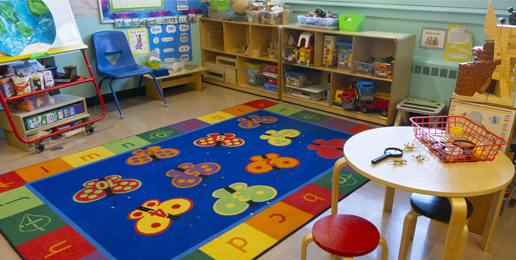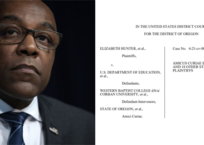
Written by MFC Editor
The Biden administration is continuing its push for “universal” Pre-K, arguing that “the earlier our children begin to learn in school, the better.” President Biden’s spending bill even devotes $200 billion to expanding access to pre-schooling. While universal pre-k sounds beneficial, leading many voters to support the idea, a newly released study shows these programs actually worsen student outcomes.
Researchers at Vanderbilt University recently released a study on Tennessee’s Voluntary Pre-K (TN-VPK) program and its effect on children’s academic success through 6th grade. The long-term study followed 2,990 low-income children and randomly assigned some of them to attend Pre-K.
Students who participated in the TN-VPK program performed worse overall than students who did not. Specifically, from third through sixth grade, students in TN-VPK received lower scores on state assessments than those who were not part of the program. Researchers also noted that TN-VPK participants had lower attendance rates and a higher frequency of expulsions and suspensions. The authors of the study claimed that these findings “are not at odds with findings from other studies of children who experience group care in childhood.”
Further, a higher rate of children who participated in the program also required special education, negating the argument that federally funded pre-k will reduce the amount spent on special-ed interventions later.
Researchers suspect that the negative effects of universal Pre-K are a result of center-based care, which prevents children from exercising the independence they need to develop self-control. Others speculate that these programs place children in rigid academic environments before they are developmentally ready. Either way, it’s clear that children who are placed in universal Pre-K are done a disservice.
Tennessee’s Voluntary Pre-K program is very similar to Biden’s plan for “universal” Pre-K. If President Biden’s plan becomes a reality, the negative outcomes demonstrated in Vanderbilt’s study could become the norm nationwide.
Centralized, government-designed and mandated programs frequently fail the very people they are intended to serve. Parents and local communities are far better equipped to determine the best educational strategies for children in their state, and they should not be restrained by the federal or state government’s well-meaning but ill-informed initiatives.
The president’s proposal to implement federally funded pre-schooling would negatively impact children in every state. As we seek to improve educational options for families, it should be clear that a one-size-fits-all program full of rules created by the Biden administration is not the answer. Instead of funding programs that will harm children, policymakers should consider letting tax dollars follow the child and giving parents the power to make decisions about their children’s education that best fits their needs.
This article was originally published by the Minnesota Family Council.































